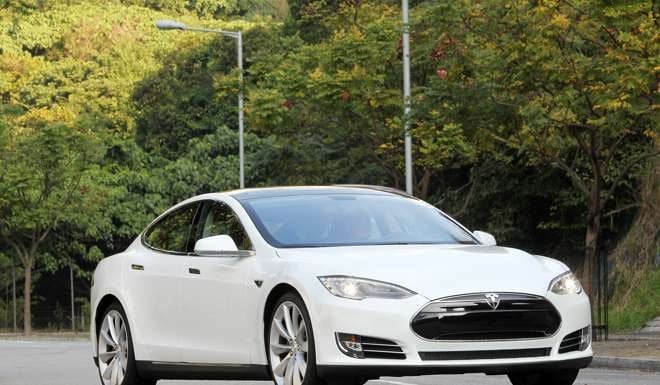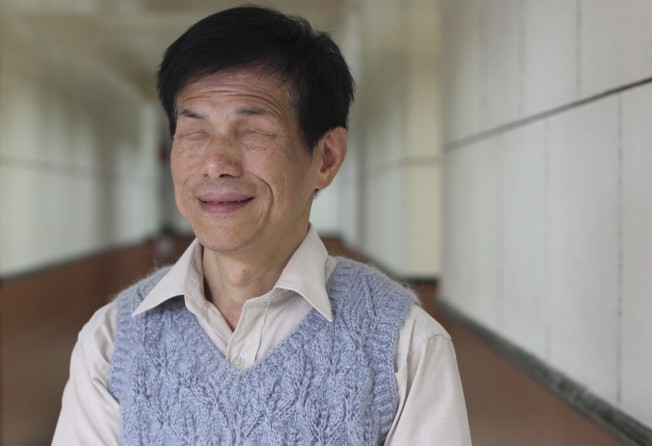
Hong Kong blind community calls for louder noise from electric cars to improve safety
Local effort part of global campaign as number of e-cars in city surpasses 6,000

The silent nature of electric cars may improve quality of life, but Hong Kong’s blind community has demanded the city’s e-vehicles emit a louder noise, claiming their quietness threatens the safety of the visually impaired, the Post has learned.
Joining forces with the World Blind Union’s global campaign against silent e-cars over safety risks, the Hong Kong Blind Union has raised calls for local authorities to introduce legislation to regulate the vehicles.
Concerns have been raised by the international blind community about their hazards as they give no audible warnings to road users. This risk is higher when silent cars proceed at low speeds such as in parking lots.
As some countries such as the US, the UK and Japan already have plans to regulate e-cars’ sound levels, the union hoped local officials would require the city’s e-cars to be equipped with an alert system so that not only the visually impaired but also the elderly and children could easily be alerted to their movements, particularly on quiet roads. As of the end of August this year, there were 6,167 electric vehicles in Hong Kong, up from fewer than 100 at the end of 2010.
The union’s president Chong Chan-yau told the Post his group wrote a letter to the government in March this year asking that it introduce legislation and conduct a public consultation with all stakeholders, especially the blind community. “But the reply to us did not indicate any active actions to be taken by the government,” he said.

“E-cars are now being regarded as a potential threat to visually-impaired pedestrians. The World Blind Union has raised this issue over the past two years at the UN and the European Union. This battle is being fought internationally,” he added.
E-cars are now being regarded as a potential threat to visually-impaired pedestrians. This battle is being fought internationally
A Transport and Housing Bureau spokesman told the Post it would follow up the issue as the UN Economic Commission for Europe world forum for the harmonisation of vehicle regulations was soon to publish a regulation requiring acoustic warning devices on hybrid and electric cars.
Once the regulation is published, the department will “liaise with the electric-vehicles’ manufacturers to follow up on installing acoustic warning systems on their vehicles” to further safeguard road users, the spokesman said.
He added the department had tried to persuade the relevant suppliers in Hong Kong to install the alert system to address blind people’s concerns, believing they would follow the new regulation.
He said some e-vehicles’ manufacturers such as Nissan Leaf and Renault Zoe had “already taken the initiative to introduce such systems into certain EV models in Hong Kong”.
But Chong said regulation of e-cars’ warning devices was necessary as the blind relied heavily on surrounding noise for orientation and discerning between vehicular and pedestrian roads.
He added that while many manufacturers agreed to install a warning system in their e-cars, some would like to give drivers an option to turn off the sound. Chong cited views he gathered at a World Blind Union conference in Orlando, Florida, in August.
“This is unacceptable to us. For the drivers, it doesn’t affect them because the sound is emitted outside the car, not inside. We will insist that the system should always be turned on,” he said.
Locky Law, Tesla owner representative at Charged Hong Kong, said e-car owners would not oppose installing a beeper if carmakers sought to use the device to address blind people’s concerns.
However, he expressed worries over noise emission levels as the city’s streets were already clattering with different types of sounds. Law said adding beepers to e-cars and requiring them to emit a sound whenever they moved would “certainly make the roads very noisy”.
“How loud should the beeper be then?” he asked. “With so many sounds on the roads, will that be even more confusing and dangerous for the blind?”
Law said the best approach was to conduct joint tests on Hong Kong streets with participation from representatives from blind groups as well as the government, academic experts and automakers to determine what noise standards would be suitable locally.
A spokesman for carmaker Honest Motors, which produces the Nissan Leaf, said the company’s e-cars had been equipped with beepers since 2011 in compliance with US regulation.
“The sound is loud enough to provide a warning to road users and quiet enough to avoid being disturbing,” he said. “Since the noise is emitted from outside [the vehicle], it still enables a quiet environment inside.”
Tesla Motors in Hong Kong had no comment on the issue.